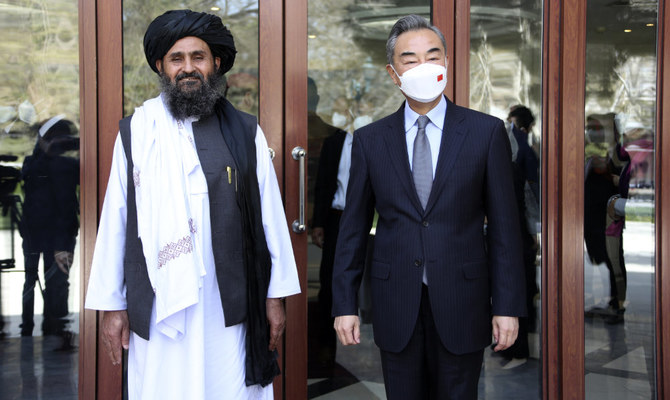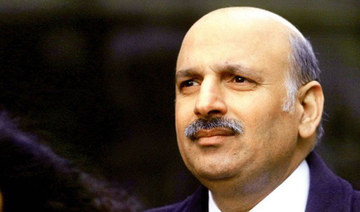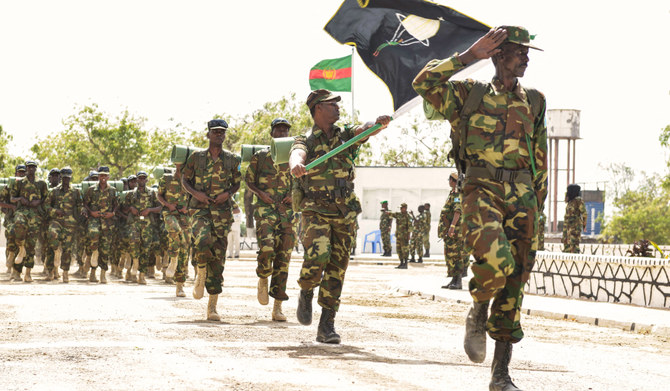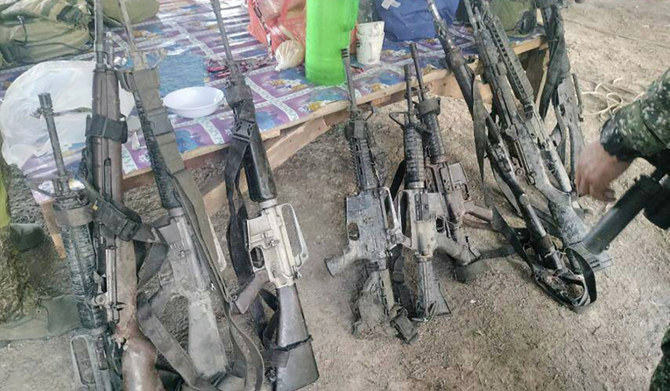KABUL: Investment in Afghanistan is likely to be high on the agenda during an upcoming meeting between foreign ministers of the country’s neighbors, experts said on Tuesday, as the Taliban’s top envoy is scheduled to attend the session in China.
The third meeting of the foreign ministers of Afghanistan’s neighboring countries — Pakistan, Iran, Russia, Tajikistan, Turkmenistan and Uzbekistan — will take place in Tunxi, China’s eastern Anhui province, on Wednesday and Thursday.
Afghan Foreign Minister Amir Khan Muttaqi’s attendance was confirmed during his Chinese counterpart Wang Yi’s surprise trip to Kabul last week — the highest-level visit by a Chinese official since the Taliban took over Afghanistan in August.
The Afghan foreign ministry said in a statement after Wang’s trip that he and Muttaqi spoke about expanding economic ties and investment in Afghanistan.
China may become the first major power to take on large-scale projects in Afghanistan, which has plunged into financial and humanitarian crises since the exit of US-led foreign forces and the Taliban takeover.
“The Taliban are eagerly looking for China’s investment in mines, especially the Mes Aynak copper mine. They put a lot of hope in China’s economic support to Afghanistan,” Hekmatullah Zaland, executive director of the Kabul-based Center for Strategic and Regional Studies, told Arab News.
Afghanistan’s mineral resources are estimated to be worth $1 trillion and have not been unearthed amid decades of violence. Mes Aynak, 40 km southeast of Kabul, contains the country’s largest copper deposit, expected to be worth tens of billions of dollars.
While China, like other countries, has yet to recognize the Taliban, Zaland added that hopes regarding the upcoming regional forum are also pinned on Beijing’s political support.
“The Taliban are also looking for China’s political support internationally, as a country that has influence over Afghanistan’s neighbors in particular,” he said.
Political analyst Abdul Hai Qanit also said that attracting investment is one of the key priorities of Afghan authorities.
“They will look forward to convincing China into more investment in Afghanistan. China is aiming for this too,” he told Arab News.
He added that other regional countries are also undertaking efforts to improve regional connectivity and security.
“Neighboring countries realize that a stable and connected Afghanistan will enhance regional integration and economic development,” he said.
Chinese Foreign Ministry Spokesperson Wang Wenbin said earlier this week that by hosting the third meeting of the foreign ministers of Afghanistan’s neighbors, “China looks forward to pooling more consensus on the Afghan issue from neighboring countries” to jointly stabilize the country. He also said that Beijing hopes to “work on the Afghan side to build an open and inclusive political structure.”
As the Taliban government still lacks international recognition, the upcoming meeting may not bring it from the Chinese side.
“From China’s standpoint, the time for recognition has not come yet,” Torek Farhadi, a former adviser to the Afghan government, told Arab News.
“China wants an inclusive government in Kabul and sees long-term stability made possible this way.”
The Taliban returned to power in mid-August, two decades after their first stint in power from 1996 to 2001.
While they had promised to form an inclusive government, unlike during their first rule, they eventually installed an all-male, Taliban-only administration, and curtailed the rights of women.
The third meeting of foreign ministers of Afghanistan will come after renewed concerns over a lack of inclusivity under Taliban rule, as last week they broke their promise to reopen schools to girls beyond the sixth grade. The reopening of schools for girls was one of the conditions the international community had set for a possible official engagement with the Taliban government.
The first meeting of Afghanistan’s neighbors was chaired by Pakistan on Sept. 8, 2021, one day after the Afghan Taliban announced the formation of their government.
The second meeting was held in Tehran, on Oct. 27, 2021.



























